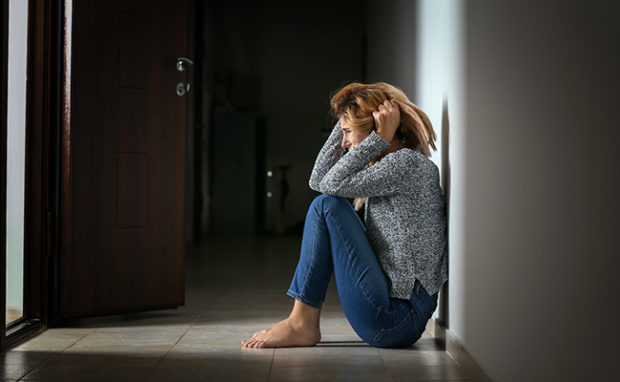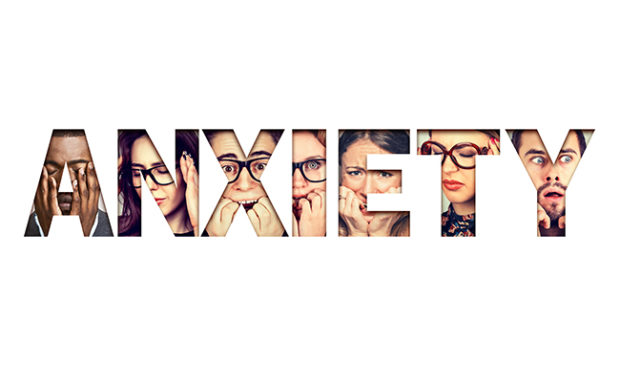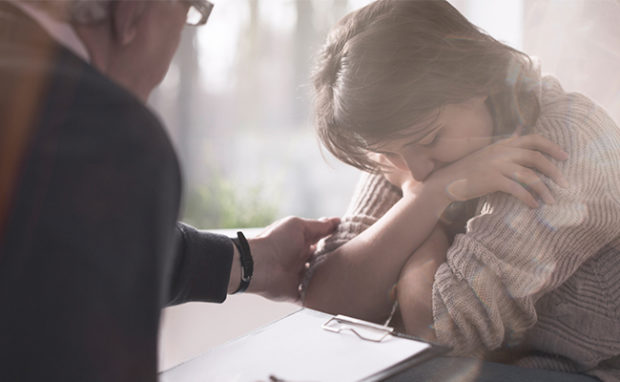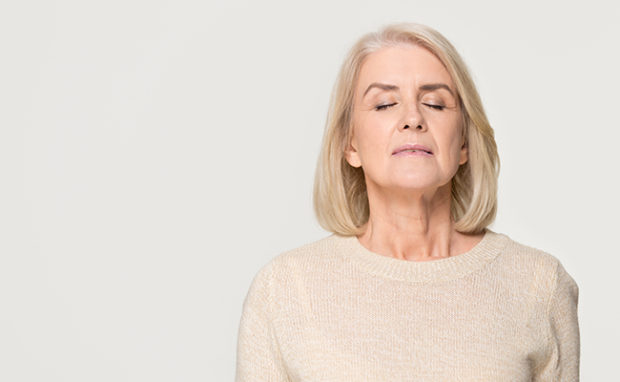How to Control an Anxiety Attack
Are you battling with the issue of an anxiety attack? You are not alone. Read on as we are going to learn more about anxiety attack symptoms and how you can effectively control anxiety disorder.
We all experience anxiety at one point or another in our daily endeavors. For instance, giving a speech in front of a large audience can make us panic, but the good part of it is that it stimulates us to prepare and practice well ahead of time.

You also experience an anxiety attack while driving in traffic, but it makes you stay alert and cautious to prevent an accident. Mild anxiety attacks motivate us to do our best to prevent mishaps, but when it is becoming overwhelming such that it prevents you from doing your normal activities, this calls for concern, you might be battling with a panic attack.
Symptoms of Anxiety Disorder
Anxiety Disorder can be explained as a series of related conditions, each having a different symptom. You must note, however, that all panic attacks have one symptom that is common to all of them, which is perpetual and excessive fear. You can easily identify a person with an anxiety attack through their phobic nature. Some of the signs of a panic attack are listed below:
Physical Symptoms
- Insomnia, headache, and fatigue
- Twitches, sweating, and tremor
- Diarrhea, upset stomach, and frequent urination
- Shortness of breath and fast heartbeat
Emotional Symptoms
- Always expecting the worst
- Dreadful feeling
- Irritability or Restlessness
- Feeling tense
What are the Kinds of Anxiety Disorder?
Anxiety attacks are of different types, and each of them has a different sign. The most common type of anxiety attack is enumerated below:
Social Anxiety disorder
This disorder is not in any way equal to shyness. Social anxiety disorder causes extreme fear of social interaction and it is often fueled by unnecessary worry about humiliation. When you are worried that you might say something unacceptable or go blank in front of your audience.
People with this kind of disorder will isolate themselves; they will not participate in class deliberation or make their views known about an issue.
Phobias
No doubt, we try as much as possible to avoid situations or things that are dreadful or make us uncomfortable.
People with phobia exhibit irrational fear of certain places, objects or events. This category of people with specific phobias is always conscious of the things that trigger irrational fear in them. So, they steer clear of such triggers.
Panic Disorder
This type of disorder is associated with a panic attack and an abrupt feeling of terror, which comes incessantly without warning. At first, you might see it as a heart attack, but it is not. Some of its signs are chest pain, dizziness, heart palpitations, stomach upset as well as shortness of breath.
Generalized Anxiety Disorder (GAD)
This type of anxiety disorder is an intense, extreme worrying everyday life. People with this type of disorder will not be able to concentrate and finish up their assigned duties. It takes a better part of their time as they become worn out due to extreme worry.
Other types of anxiety disorder are:
- Medication-induced Anxiety Disorder
- Agoraphobia
- Separation Anxiety Disorder
- Selective Anxiety Disorder
CAUSES, DIAGNOSIS, AND TREATMENT OF ANXIETY DISORDER
After extensive research, it was discovered that anxiety disorder is a result of the combination of several factors. Here are the important ones:
Environment
An unpleasant occurrence or event such as rape, violence, war, the demise of loved ones, prolonged illness and other traumatic events are seen as part of the causes of anxiety disorder.
Genetic
According to research findings, an anxiety disorder can be hereditary, meaning that it runs in the family.
The diagnosis of anxiety disorder can be confusing because its symptoms are similar to that of other medical conditions such as hyperthyroidism or heart diseases.
So, for proper diagnosis, a doctor is likely to conduct a lab test, physical examination and ask a few questions. Once it has been confirmed that you are free from the suspected medical condition, the person may then be referred to a mental health professional for an evaluation.
The treatment of anxiety disorder is based on the symptoms, which indicates that each type of anxiety disorder has a unique treatment procedure. However, some treatments are common to all kinds of anxiety attacks. Some of the types of anxiety treatments are given below:
- Medication such as antidepressants and anti-anxiety medication.
- Psychotherapy like cognitive behavioral therapy
- Complementary health approaches such as relaxation and stress techniques
How to Stop a Panic Attack
Panic attacks are abrupt, extreme surges of anxiety, fear, and panic. They can be overwhelming because they often come with emotional and physical symptoms. The truth is that you can control and stop this attack permanently, even without medical intervention. Here are some methods or techniques that will help you overcome panic attack:
Practice Deep Breathing
Deep breathing can reduce panic attacks when you have symptoms of a panic attack like hyperventilating. You are most likely to stop hyperventilating if you can control your breathing. Here is how to go about it – take a deep breath and let air move in and out through your mouth. Let the air fill your chest and belly slowly and leave them in the same manner.
Close Your Eyes
If you are going through an area with a lot of stimuli, you can reduce panic attacks in this situation by closing your eyes. By doing so, you will block out extra stimuli and concentrate on your breathing.
Practice Mindfulness
The physical attack can make you feel detached from your immediate environment, so practice mindfulness. Focus on your usual or habitual sensation like feeling the texture of your jeans or tapping your feet against the ground. This technique gives you something to focus on and distract you from the triggers.
Find a Focus Object
Another way to stop a panic attack is by finding an object to focus your attention on during an anxiety attack. So, select one object that is very close to you and notes everything possible about it.
Your panic symptoms may stop or reduce significantly if you focus all your energy on an object.
Use Muscle Relaxation Techniques
Muscle relaxation is as effective as deep breathing when it comes to controlling a panic attack. This technique involves putting your body’s response under control. You relax each of your muscles one at a time.
You can start with the muscles of your finger and move to the hand and move up your body, practice this technique beforehand to make it effective.
Engage in a Simple Exercise
Light exercise can also help you reduce or stop panic attacks. However, you should use this technique if you are struggling to breathe or if you are hyperventilating. Exercise can help flood our body system with endorphins, which keeps the blood pumping in the right manner.
Examples of light exercises that you can engage in are swimming or walking.
Keep Lavender on Hand
Lavender is well known for its stress-relieving and soothing results. So, if you are susceptible to a panic attack, you can keep a bottle of lavender oil close to you.
SUMMARY
Anxiety attacks come in different forms and can be triggered by a lot of things. Once you have identified your triggers, avoid them as much as possible and practice one of the techniques given above in the event of a panic attack.





